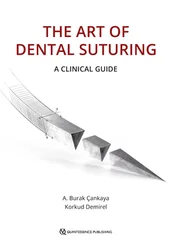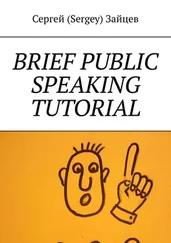the speaker will have to draw much material that no _immediate_ study
could provide. General preparation consists of all that a man has put
into himself, all that heredity and environment have instilled into him,
and--that other rich source of preparedness for speech--the friendship
of wise companions. When Schiller returned home after a visit with
Goethe a friend remarked: "I am amazed by the progress Schiller can make
within a single fortnight." It was the progressive influence of a new
friendship. Proper friendships form one of the best means for the
formation of ideas and ideals, for they enable one to practise in giving
expression to thought. The speaker who would speak fluently before an
audience should learn to speak fluently and entertainingly with a
friend. Clarify your ideas by putting them in words; the talker gains as
much from his conversation as the listener. You sometimes begin to
converse on a subject thinking you have very little to say, but one idea
gives birth to another, and you are surprised to learn that the more you
give the more you have to give. This give-and-take of friendly
conversation develops mentality, and fluency in expression. Longfellow
said: "A single conversation across the table with a wise man is better
than ten years' study of books," and Holmes whimsically yet none the
less truthfully declared that half the time he talked to find out what
he thought. But that method must not be applied on the platform!
After all this enrichment of life by storage, must come the special
preparation for the particular speech. This is of so definite a sort
that it warrants separate chapter-treatment later.
_Practise_
But preparation must also be of another sort than the gathering,
organizing, and shaping of materials--it must include _practise_, which,
like mental preparation, must be both general and special.
Do not feel surprised or discouraged if practise on the principles of
delivery herein laid down seems to retard your fluency. For a time, this
will be inevitable. While you are working for proper inflection, for
instance, inflection will be demanding your first thoughts, and the flow
of your speech, for the time being, will be secondary. This warning,
however, is strictly for the closet, for your practise at home. Do not
carry any thoughts of inflection with you to the platform. There you
must _think_ only of your subject. There is an absolute telepathy
between the audience and the speaker. If your thought goes to your
gesture, their thought will too. If your interest goes to the quality of
your voice, they will be regarding that instead of what your voice is
uttering.
You have doubtless been adjured to "forget everything but your subject."
This advice says either too much or too little. The truth is that while
on the platform you must not _forget_ a great many things that are not
in your subject, but you must not _think_ of them. Your attention must
consciously go only to your message, but subconsciously you will be
attending to the points of technique which have become more or less
_habitual by practise_.
A nice balance between these two kinds of attention is important.
You can no more escape this law than you can live without air: Your
platform gestures, your voice, your inflection, will all be just as good
as your _habit_ of gesture, voice, and inflection makes them--no better.
Even the thought of whether you are speaking fluently or not will have
the effect of marring your flow of speech.
Return to the opening chapter, on self-confidence, and again lay its
precepts to heart. Learn by rules to speak without thinking of rules. It
is not--or ought not to be--necessary for you to stop to think how to
say the alphabet correctly, as a matter of fact it is slightly more
difficult for you to repeat Z, Y, X than it is to say X, Y, Z--habit has
established the order. Just so you must master the laws of efficiency in
speaking until it is a second nature for you to speak correctly rather
than otherwise. A beginner at the piano has a great deal of trouble with
the mechanics of playing, but as time goes on his fingers become trained
and almost instinctively wander over the keys correctly. As an
inexperienced speaker you will find a great deal of difficulty at first
in putting principles into practise, for you will be scared, like the
young swimmer, and make some crude strokes, but if you persevere you
will "win out."
Thus, to sum up, the vocabulary you have enlarged by study,[4] the ease
in speaking you have developed by practise, the economy of your
well-studied emphasis all will subconsciously come to your aid on the
platform. Then the habits you have formed will be earning you a splendid
dividend. The fluency of your speech will be at the speed of flow your
practise has made habitual.
But this means work. What good habit does not? No philosopher's stone
that will act as a substitute for laborious practise has ever been
found. If it were, it would be thrown away, because it would kill our
greatest joy--the delight of acquisition. If public-speaking means to
you a fuller life, you will know no greater happiness than a well-spoken
speech. The time you have spent in gathering ideas and in private
practise of speaking you will find amply rewarded.
1. What advantages has the fluent speaker over the hesitating talker?
2. What influences, within and without the man himself, work against
fluency?
3. Select from the daily paper some topic for an address and make a
three-minute address on it. Do your words come freely and your sentences
flow out rhythmically? Practise _on the same topic_ until they do.
4. Select some subject with which you are familiar and test your fluency
by speaking extemporaneously.
5. Take one of the sentiments given below and, following the advice
given on pages 118-119, construct a short speech beginning with the last
word in the sentence.
Machinery has created a new economic world.
The Socialist Party is a strenuous worker for peace.
He was a crushed and broken man when he left prison.
War must ultimately give way to world-wide arbitration.
The labor unions demand a more equal distribution of the wealth
that labor creates.
6. Put the sentiments of Mr. Bryan's "Prince of Peace," on page 448,
into your own words. Honestly criticise your own effort.
7. Take any of the following quotations and make a five-minute speech on
it without pausing to prepare. The first efforts may be very lame, but
if you want speed on a typewriter, a record for a hundred-yard dash, or
facility in speaking, you must practise, _practise_, _PRACTISE_.
There lives more faith in honest doubt,
Believe me, than in half the creeds.
--TENNYSON, _In Memoriam_.
Howe'er it be, it seems to me,
'Tis only noble to be good.
Kind hearts are more than coronets,
And simple faith than Norman blood.
--TENNYSON, _Lady Clara Vere de Vere_.
'Tis distance lends enchantment to the view
And robes the mountain in its azure hue.
--CAMPBELL, _Pleasures of Hope_.
His best companions, innocence and health,
And his best riches, ignorance of wealth.
--GOLDSMITH, _The Deserted Village_.
Beware of desperate steps! The darkest day,
Live till tomorrow, will have passed away.
--COWPER, _Needless Alarm_.
My country is the world, and my religion is to do good.
Читать дальше












